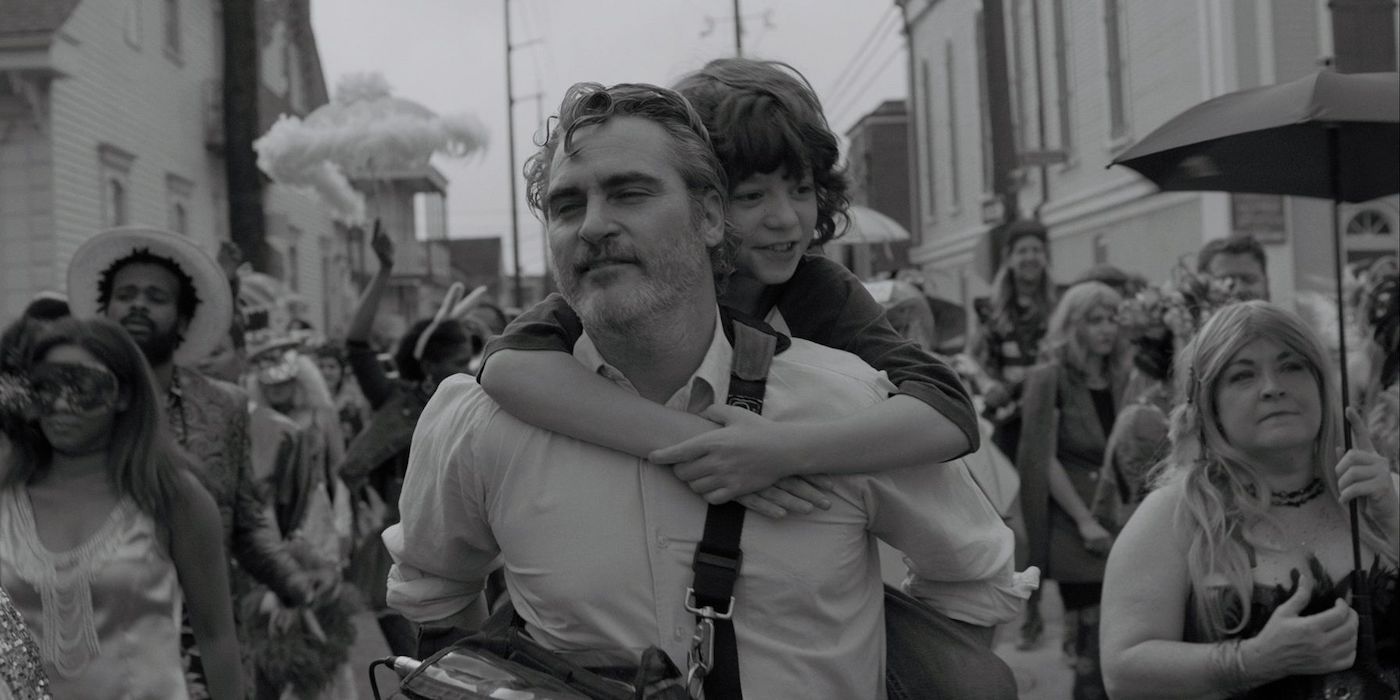With Mike Mills’s latest release, C’mon C’mon, the writer/director has cemented himself as someone with great love and admiration for motherhood and the act of child-rearing. Mills’s career began with work in music videos and television, and he transitioned into making feature-length films with Thumbsucker in 2005, followed by Beginners in 2010. It was 20th Century Women that earned Mills broader accolades (including an Academy Award nomination for Best Screenplay) and recognition that he’d yet received, and it also happened to be his most personal work. 20th Century Women and C’mon C’mon are consecutive releases in Mills’s filmography, and they work as a complimentary pair of stories about motherhood, parenting, memory, and growing up.
In 20th Century Women, Lucas Jade Zurmann stars as Jamie, the son of Annette Bening’s Dorothea. Dorothea rents out rooms in their home to Abbie (Greta Gerwig) and William (Billy Crudup) and worries that she alone will not be enough to properly raise her son. So she enlists the help of Abbie and Jamie’s friend Julie (Elle Fanning) to help her teach him the ways of the world and how to be a good man. Mills famously based 20th Century Women on his own childhood and upbringing. Perhaps this is why Dorothea feels so real. (Bening giving a career-best performance doesn’t hurt matters either.) Mills is a fantastic writer. He grounds his stories in reality, creating characters that feel truthful, while maintaining a uniqueness that makes them compellingly watchable.
It’s this strength in writing characters that makes his stories so great. While many writers can create characters, not all can apply the same skill to writing mothers. Mothers in movies can be so many things but are too often reduced to simplistic stereotypes that feel that like less of a fully-formed person than their male-protagonist counterparts. Mills’s attention to mothers shows a respect for the people that they are and not just the position that they hold or what they can do for others.
In C'mon C'mon, Joaquin Phoenix stars as Johnny. His life changes when his sister Viv (Gaby Hoffman) asks him to look after her son Jesse (Woody Norman) while she takes care of her husband, who is suffering from a debilitating mental illness. Mills applies the same deft touch to the sentimentality of the story that he brought to 20th Century Women; he gives you the space to feel all the feelings, but doesn’t apply the sickly sweet texture that can come across as cloying or cheap in other lesser movies.
Through Johnny, and the way he’s suddenly thrust into this sort of surrogate parenting, the audience gains an appreciation for the extreme highs and lows of child-rearing. C’mon C’mon feels as personal as 20th Century Women, but with more of a focus on the parent’s view of the child, whereas 20th Century Women felt more like it was being told from Jamie’s point of view. Mills revealed while promoting the film that he took inspiration from his relationship with his own child when writing the film.
Mills takes the reverence he has for mothers and the impossible task of raising children and applies both with full force in C’mon C’mon. However, this time around, he’s also applied that same love and attention to the children in a way that not even 20th Century Women did. There’s a scene at the end of the film where Jesse, Johnny, and Viv each grieve in their own ways for the inevitable passing of Jesse’s childhood, and for the memories of that special time he’ll one day struggle to recall.
Mothers, parents, guardians: all weather the storm of a child growing up and changing. It’s what you want, and it can be as beautiful as it is heartbreaking. But in the eye of this storm is the mother (or the father, or the uncle, or the roommate, and the list goes on). They are the ones whose resiliency has the power to keep them and their child afloat, and who take on the impossible task of making everything alright.
In a strange way, both 20th Century Women and C’mon C’mon eulogize their subjects. Jamie reflects on the wonder that was his mother after her passing in an epilogue at the end of the movie. While nobody dies in C’mon C’mon (save flashbacks to Johnny and Viv’s mother set before the events of the movie), Johnny makes a note of every moment spent with Jesse as he grows and changes from one moment to the next. Jesse will continue to live and learn and grow up, and, as he does so, he will shed pieces of his childhood self to be left behind and (hopefully) remembered.
At one point, Johnny remarks on his interest in recording things. He says that for him, recording sound is a way of keeping a moment forever, just as it was. In a way, Johnny’s recordings of his time with Jesse, as well as the kids he interviews for work, add a level of beautiful authenticity to the film and hearken back to the photographs Abby takes of Jamie when she takes him for a night out in 20th Century Women. She shows Dorothea the photographs of how alive Jamie was in those moments, and Dorothea responds somewhat wistfully with: “You get to see him out in the world, as a person. I never will.”
This is what Mills’s films get at. The documentarian feel, the personal touches, all relate to the ways that the moment-to-moment impermanence of life are painfully, beautifully elevated in the relationship between parents and children. Dorothea, Viv, and even Johnny are good parents, despite the odd and inevitable missteps. As capable and lovely as they are, watching them raise their boys highlights the struggle of parenthood, the thankless task of child-rearing that breaks your heart as it gives your life meaning.
Both 20th Century Women and C’mon C’mon end with the protagonists doing their best to recall the most important people in their lives. For Jamie, this is his mother, who he feels he can’t do justice to in any description he could come up with. For Johnny, it involves telling Jesse everything he can remember about their time together, so that neither one will forget it.



